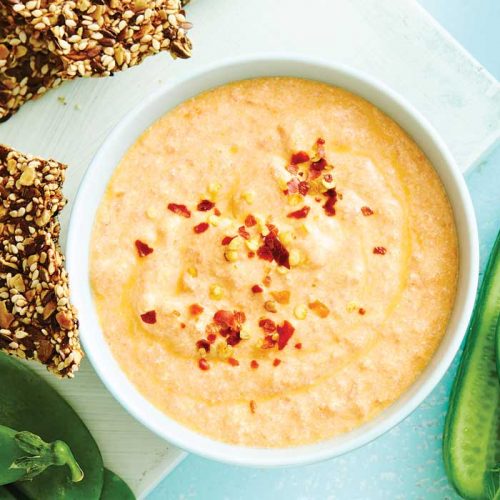
Being in the moment can help reduce stress and anxiety, and transform your health. Not sure where to start? HFG shows you how.
What is mindfulness?
Mindfulness has become a buzzword in recent years. The Oxford Dictionary defines it as ‘a mental state achieved by concentrating on the present moment, while calmly accepting the feelings and thoughts that come to you, used as a technique to help you relax and a way for your body and mind to reconnect.
Most of the time, we aren’t paying full attention to what we’re doing. Whether we’re walking, washing the dishes, chatting on the phone or eating, it’s rare for us to be fully present in the moment. Psychologists often describe anxiety as a state of future thinking or worrying about what might happen, and depression as a state of dwelling on the past and being unable to let go of things that have happened. But in the present moment, the ‘right now’, usually nothing bad is happening and we are safe. So, being present can bring a great sense of calm and release.
Mindfulness is a tool that helps us focus on what’s going on right now rather than projecting forward or looking back, and that can be useful for our mental health.
Clinical psychologist Chantal Hofstee describes mindfulness as ‘brain training’. “It’s rewiring our brain to increase resilience and mental strength,” Dr Hofstee explains. ”There’s been a lot of research into the topic, which has shown mindfulness helps us build mental resilience and agility, and improves cognitive function.”
How does mindfulness help?
When we’re in a state of stress, physically we become stronger as a result of our body’s ‘fight or flight’ response, but we become mentally weaker. We don’t think as clearly as we would when not under pressure, and it can be very hard to keep our brain engaged. “People with mental health issues, such as anxiety and bipolar disorder, tend to be reactive to situations,” Dr Hofstee says. “Training your attention muscles helps you stay focused, be non-judgemental and present in the situation, which reduces stress and helps you deal with it in a more positive, proactive manner.”
 Eating mindfully
Eating mindfully
Giving your full attention to situations can have benefits for both mental and physical health. For instance, you may have heard of mindful eating. Being aware of what you eat and actively staying in the present moment when you’re eating has been shown to help with eating-related issues, including binge eating, diabetes and weight management.
While mindfulness, in general, can create feelings of calm and relaxation, mindful eating takes the stress out of eating by providing the awareness required to realise what your body actually needs – which, in some cases, isn’t food. “Eating is something we do every day. There is always another meal,” mental health dietitian Brad Brosnan says. “Paying attention to what we’re eating, and doing it kindly, without taking on shame or blame, can open doors and help us better understand how we view food. In making the choice to have a piece of fruit or a piece of chocolate, we can become aware of our reactions, preferences, tastes and habits. “In this way, if we’re in a stressful situation and our instant thought is ‘I need pizza’, or ‘I need a bottle of wine’, practising mindfulness gives us access to our inner wisdom that says, ‘Sure, I could do that – but maybe I want to do something else, like go for a walk, choose something else to eat or have a glass of water.’ Practising mindfulness helps us become less impulsive.”
According to Intuitive Eating nutritionist Michelle Yandle, “Mindful eating isn’t solely about the act of eating, but stopping to press pause and tune into what your body actually needs. Ultimately, if you’re not hungry in the first place, no amount of food is going to satisfy you. The most powerful step is to be able to stop and ask yourself, ‘Am I hungry?’ This gives us an opportunity to tune into the physical symptoms of hunger. If they aren’t present, you have time to stop and determine what your body is actually asking you for. Is it rest? Is it to plan better? If you aren’t hungry, food is not going to provide the necessary outcome.”
How to pay attention
If you do need food, however, how you consume it matters. Have you ever found yourself unconsciously chowing down on your third biscuit or pouring another glass of wine without really thinking about what you’re doing? Mindful eating is the practice of paying attention to your eating experience. Simply concentrating on what you’re doing and recognising the cues your body is giving you can help reshape your relationship with food, as well as improve mental health.
So how do we go about practising mindfulness? Like most things, it’s up to individuals to find out what works best for them. Guided meditation, either through apps, such as Calm or Headspace, or with a therapist, can be a useful way of becoming aware of your sensations, thoughts and emotions.
Mindful eating tips
- Check in with yourself before you eat. Do you need what you’re about to eat or would your body be happier with an alternative?
- Chew everything thoroughly and take a breath between bites. Not only will you appreciate the food more, it will also slow you down, reducing the chances of overeating.
- Eat at a table, without any distractions, such as the television, computer or phone, and concentrate on what you’re eating and whether you’re enjoying it.
- Being non-judgemental is important. Being too harsh on yourself leads to shame and guilt. Concentrate on being grateful for the energy and nourishment the food you’re eating is giving you.
- Choose to eat food that is both pleasing and nourishing and use all your senses – touch, smell, hearing and sight, as well as taste.
- Be conscious of, and reflect on, the effects caused by mindless eating, such as eating out of boredom or sadness or overeating until you feel uncomfortable.
Easy mindfulness exercises to start
Be still and focus on your breathing. Do this for one minute, then build up the time from there. Focus your awareness on the inhalation then exhalation. Notice where you feel it in your body. Don’t try to control it, just observe. Count your breaths to 10, if that helps you focus, then repeat. As thoughts distract you, don’t worry. Just let them go and return to counting your breaths.
Mindful awareness
This cultivates your awareness and appreciation of simple daily tasks and what they achieve. For example, next time you need to rinse a cup, take a moment to think about turning on the tap, seeing the water run out, the feeling of the cup in your hands and the sensation of the water on your skin.
Practise makes perfect
Mindfulness is something that needs to be practised and incorporated into daily life. Brain scans show emotional and behavioural changes, such as stress reduction, after about eight weeks of regular mindfulness practise.
www.healthyfood.com











